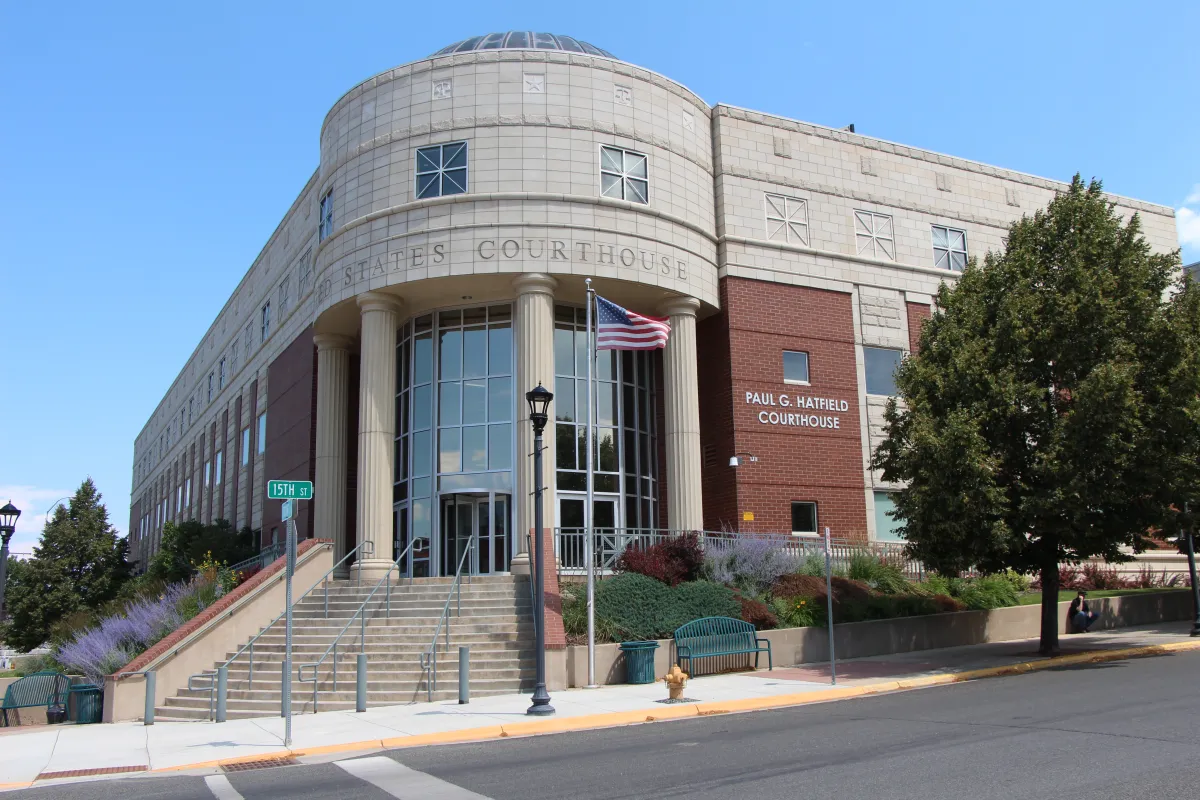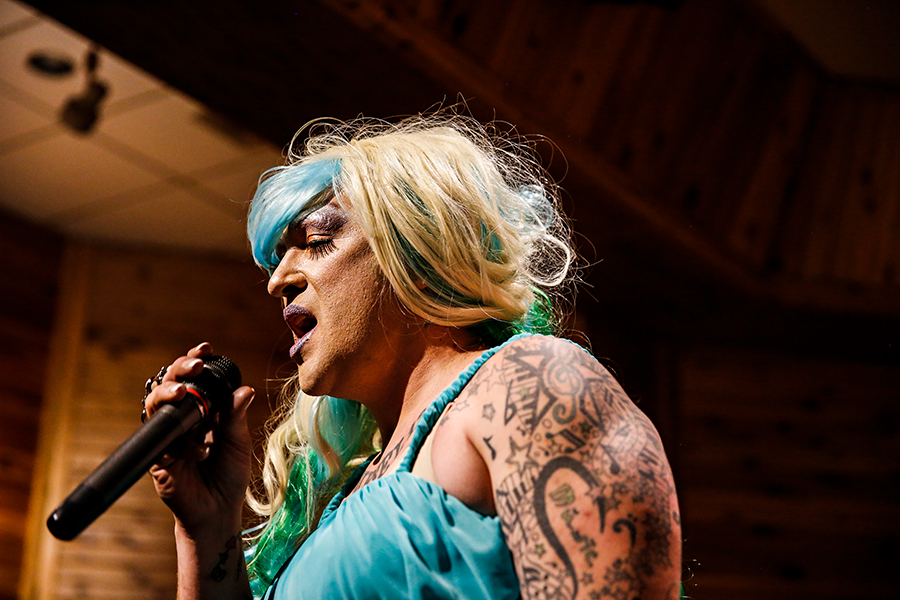Montana’s Anti-drag Law on Hold Ahead of Pride Festivities
A federal judge temporarily restrained officials from enforcing HB 359 after a Wednesday hearing on the Republican-crafted law
By Mara Silvers, Montana Free Press
A federal judge in Helena on Friday temporarily blocked state officials from enforcing Montana’s new law restricting drag story hours and drag shows ahead of one of the state’s largest LGBTQ+ Pride celebrations, which is slated to kick off Sunday in the state capital.
U.S. District Court Judge Brian Morris’ ruling said a temporary restraining order on House Bill 359 is warranted to avoid the restriction of free speech rights for plaintiffs and Pride attendees and to relieve the city of Helena from the “untenable choice” between violating the constitution’s First Amendment protections or the new state law when considering whether to issue permits for the weeklong festivities.
“Plaintiffs, along with the approximately 15,000 Montanans who wish to attend the events, cannot avoid chilled speech or exposure to potential civil or criminal liability under H.B. 359 in the absence of the extraordinary remedy of a [temporary restraining order],” the ruling said.
Morris declined to rule on the plaintiffs’ request for a preliminary injunction of the law — a more longstanding block while litigation continues — until attorneys for the state can submit arguments on that motion.
The order comes after a two-hour hearing Wednesday where attorneys for the plaintiffs, the city of Helena and Montana Attorney General Austin Knudsen debated the impacts of the law and whether a temporary restraining order should be put in place.
The plaintiffs include local arts groups, LGBTQ+ advocacy organizations, businesses and individuals, all of whom say the Republican-crafted law unconstitutionally suppresses free speech and expression and implements confusing restrictions on performances, appearance and events.
Plaintiffs’ attorney Constance Van Kley argued that Montana’s law — like similar drag restrictions in Tennessee and Florida that have been blocked in federal court — represents an inherently content-based restriction on free speech.
“They both are intended to target drag performances because of a perceived fear that exposing children to nonconforming gender expression is harmful to minors,” Van Kley said Wednesday.
The lawsuit was amended earlier this month after the Montana Pride organization, joining the case as a plaintiff, accused the city of Helena of denying permits for Pride events over fear of violating HB 359. That conflict prompted attorneys for the plaintiffs to seek emergency relief from the law through a temporary restraining order.

City of Helena attorney Rebecca Docktor confirmed in court on Wednesday that the municipality would issue permits for the upcoming 30th anniversary Pride events, but called the law “a conundrum.” While the government has no power to restrict content-based speech through the permitting process, Docktor said, there remains a possibility that city employees would be held liable for promoting or conducting the banned performances.
“We do not dispute [the need for a] temporary restraining order to be issued,” Docktor told Morris during the hearing. “We would appreciate that.”
In a statement after the ruling, Montana Pride’s lead organizer, Kevin Hamm, said the court “got it right.” He added that the order illuminated the intentions of HB 359’s supporters who, Hamm said, “attacked the LGBTQIA+ [community]” during the legislative session.
“These bigoted bills are a colossal waste of time and money,” Hamm said.
Rep. Braxton Mitchell, R-Columbia Falls, the lead sponsor of HB 359, did not reply to a request for comment before publication.
The Republican-crafted law went through several drafts and attempted revisions. The final version defines drag kings and queens as male or female performers who adopt “a flamboyant or parodic” feminine or male persona “with glamorous or exaggerated costumes and makeup.” The law also creates a definition for a “sexually oriented business,” bans “sexually oriented performances” at private businesses and public settings where minors are present, and restricts drag story hours at schools and libraries.
Morris’ Friday ruling said those definitions fall short of providing clarity for plaintiffs, defendants or the general public. The law’s passive treatment of phrases like “‘flamboyant or parodic [male or female] persona,’ ‘glamorous or exaggerated costumes and makeup,’ ‘salacious dancing,’ ‘sexual manner’” and other terms, Morris wrote, “raises concerns for the Court about vagueness and overbreadth.”
Morris also delved into the law’s potential consequences of criminal prosecution, fines and loss of teaching licenses. HB 359 also gives individual minors and their families up to 10 years to bring lawsuits against any person “who knowingly promotes, conducts, or participates as a performer in the performance.”
That part of the law, Morris wrote, “appears likely to ‘encourage arbitrary and discriminatory enforcement’” by inviting authorities and private citizens to take action based on their personal judgment and interpretation of the law.
“This assessment appears to hinge upon a personal, subjective determination about what qualifies as a ‘flamboyant or parodic’ gendered persona with ‘glamorous or exaggerated’ clothing and makeup, without any statutory definition of these terms for guidance,” the ruling said.
“The Court determines that H.B. 359’s statutory scheme likely will disproportionately harm not only drag performers, but any person who falls outside traditional gender and identity norms, including trans and Two-Spirit people,” Morris continued. “As with the Florida drag ban … H.B. 359 proves “dangerously susceptible to standardless, overbroad enforcement.’”
State attorneys from Knudsen’s office argued in court Wednesday that the law helps fill a gray area between what is considered obscenity for adults and “less than obscenity” for minors.
“It’s a stopgap,” said Assistant Attorney General Thane Johnson. “The state has a right to limit minors from seeing something that is less than obscene.”
Johnson disputed the plaintiffs’ assertion that the law would curb Pride events, pointing to recent celebrations around the state since Gianforte signed HB 359 in May. Johnson also said the law is more narrow than the plaintiffs alleged. For example, he said, drag story hours could still take place on public school or library property, just not during regular operating hours or as part of a school-sanctioned extracurricular activity.
If a library closes at 9 p.m., Morris asked the state attorney, when could such a story hour take place?
“They can do it at 11 o’clock at night,” Johnson responded.
Morris also asked about enforcement of HB 359’s prohibition on “sexually oriented performances” accessible to minors, which the plaintiffs argue could be construed to include public drag shows or Pride parades.
“Who controls that? Who controls who’s standing on the sidewalk watching the parade?” Morris asked.
Law enforcement personnel, Johnson replied. Or event organizers could put signs up around the event.
“You can put up ‘no minors allowed,’” Johnson said. “That’s very plausible.”
Plaintiffs’ attorney Van Kley repeatedly returned to her argument that the law directs state and local governments to practice content-based and viewpoint-based discrimination, with no carveouts for speech with literary, political or artistic value.
“They certainly intended to target drag,” Van Kley said. “Drag questions and satirizes conventional gender norms and celebrates non-normative gender roles.”
Reading from comments about the law by Mitchell, its sponsor, Van Kley cited the legislator’s concern that exposing children to drag shows could “create an inadequate understanding of gender roles and experiences, which is damaging to their long-term social and emotional development.”
“Setting aside the complete lack of any evidence, what Rep. Mitchell is saying is that children shouldn’t be able to see drag because it may make them question gender norms,” Van Kley said.
In his ruling, Morris said the allegations of content- and viewpoint-based discrimination would require the state to prove that it has a “compelling interest” to restrict speech in such a way. While those arguments have not been fully submitted at this point in the case, Morris wrote that state attorneys defending the law “provided no evidence” to support a compelling interest during Wednesday’s hearing.
“The Court lacks, at this stage of the litigation, evidence of a compelling interest in restricting the artistic, cultural, political, and scientific speech and expression potentially criminalized by H.B. 359,” the ruling said.
A spokesperson for the attorney general’s office did not reply to a request for comment Friday.
The next hearing in the case has not been set.
This story originally appeared in the Montana Free Press, which can be found online at montanafreepress.org.